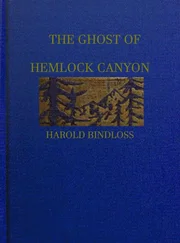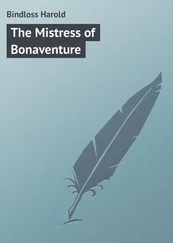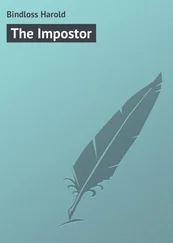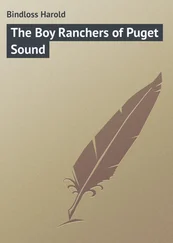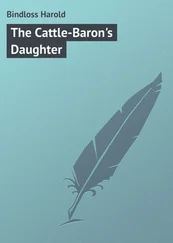Harold Bindloss - The Greater Power
Здесь есть возможность читать онлайн «Harold Bindloss - The Greater Power» — ознакомительный отрывок электронной книги совершенно бесплатно, а после прочтения отрывка купить полную версию. В некоторых случаях можно слушать аудио, скачать через торрент в формате fb2 и присутствует краткое содержание. Жанр: foreign_prose, на английском языке. Описание произведения, (предисловие) а так же отзывы посетителей доступны на портале библиотеки ЛибКат.
- Название:The Greater Power
- Автор:
- Жанр:
- Год:неизвестен
- ISBN:нет данных
- Рейтинг книги:3 / 5. Голосов: 1
-
Избранное:Добавить в избранное
- Отзывы:
-
Ваша оценка:
- 60
- 1
- 2
- 3
- 4
- 5
The Greater Power: краткое содержание, описание и аннотация
Предлагаем к чтению аннотацию, описание, краткое содержание или предисловие (зависит от того, что написал сам автор книги «The Greater Power»). Если вы не нашли необходимую информацию о книге — напишите в комментариях, мы постараемся отыскать её.
The Greater Power — читать онлайн ознакомительный отрывок
Ниже представлен текст книги, разбитый по страницам. Система сохранения места последней прочитанной страницы, позволяет с удобством читать онлайн бесплатно книгу «The Greater Power», без необходимости каждый раз заново искать на чём Вы остановились. Поставьте закладку, и сможете в любой момент перейти на страницу, на которой закончили чтение.
Интервал:
Закладка:
“I guess you’re fishing?” he observed.
“I came here to get a trout for breakfast.”
“You look like it.” Gordon smiled. “As it happened, I saw Miss Waynefleet crossing the clearing. It occurs to me that she may have said something that set you thinking.”
“I wonder,” said Nasmyth reflectively, “what made you fancy that?”
Gordon regarded him with a little twinkle in his eyes. “Well,” he replied, “I have the honour of Miss Waynefleet’s acquaintance, and have some little knowledge of her habits.”
Men make friends with one another quickly in the Western forests, and Nasmyth had acquired a curious confidence in his companion, in spite of the story Gordon had told him. As the result of this he related part, at least, of what the girl had said. Gordon nodded.
“It’s quite likely you’ll get that contract if you apply for it. The folks about the settlement haven’t sent an offer in,” he said. “The notion is naturally Miss Waynefleet’s. It’s the kind of thing that would appeal to her, and, in a way, it’s fortunate you have fallen into her hands. She’s one of the protesters.”
“The protesters?”
“Yes,” answered Gordon; “I can’t think of a better name for them, though it doesn’t exactly convey all I mean. To make the thing a little clearer, we’ll take the other kind–in this country they’re best typified by the Indians. The Siwash found it a wilderness, and made the most of it as such. They took their toll of the salmon, and fed their ponies on the natural prairie grass. If we’d left it to them for centuries it would have remained a wilderness. We came, and found Nature omnipotent, but we challenged her–drove the steel road down the great cañon to bring us provisions in, dyked the swamp meadows, ploughed up the forest, and rent the hills. We made our protest, and, quite often, it was no more than that, for the rivers were too strong for us, and the Bush crept back upon our little clearings. Still, we never let go, and it’s becoming evident that we have done more than hold our own.”
He paused, and laughed in a deprecatory fashion before he went on again. “Now and then I have an outbreak of this kind,” he added lightly. “The thing would make an epic, but, if one could write it, it wouldn’t be worth while. The protest that counts in this land is made with the axe and drill.”
The outbreak was comprehensible, for it must be remembered that the average Westerner, either by birth or adoption, is seldom a reticent man. He is, in fact, usually characterized by a daring optimism, and not infrequently filled to overflowing with the clean pride of achievement. One can hear this new-world enthusiasm bubble over on public platforms and at brilliant functions, as well as in second-rate saloons, but it is most forcibly expressed where men toil waist-deep in icy water building dyke and dam, or blast their waggon roads out of the side of the gloomy cañons. Their handiwork is not always beautiful, but one wonders to see what they have made of that great desolation.
Nasmyth lay still among the wineberries, for a minute or two, and, though a cold green transparency had replaced the fires of sunset behind the tall trunks now, and the trout were splashing furiously in the pool, he forgot all about the rod beside him as he pondered over a question which had often occurred to him.
“How is it that Miss Waynefleet is content to stay here?” he asked.
“You would hardly expect her to leave her father.”
“No,” said Nasmyth. “Any way, that is scarcely an answer. What keeps Waynefleet here? One wouldn’t fancy he likes living in the Bush.”
“It’s a little curious that you haven’t heard. Anyway, somebody is bound to tell you. Waynefleet had to get out of the Old Country. Some trouble about trust-money. He came out to Victoria and set up in the land agency business, but it was his misfortune that he couldn’t keep out of politics. There are folks like that. When they can’t handle their own affairs, they’re anxious to manage those of the community. Somebody found out the story and flung it in his face. The man hadn’t the grit in him to live it down; he struck up into the Bush and bought the half-cleared ranch.”
For the next minute or two Nasmyth gazed straight in front of him with a very thoughtful face, for he had now a vague recollection of hearing or reading of the affair in which his employer had played a discreditable part. He had already decided that he was not in love with Laura Waynefleet–in fact, it was perhaps significant that he had done so more than once, but he had a warm regard for the girl who had saved his life, and, after all, his ideas were not quite so liberal as he fancied they had become in the Western forest. It was a trifle disconcerting to discover that she was the daughter of a swindler.
“It hurts?” inquired Gordon dryly.
Nasmyth rose. “To be frank,” he admitted, “it does. Still, though the subject’s a rather delicate one, I don’t want you to misunderstand me. After all, Miss Waynefleet is not in the least responsible for anything her father may have done.”
“That,” said Gordon, “is a sure thing. Well, I must be hitting the trail home. Aren’t you going to try for some of those trout in the pool?”
“No,” answered Nasmyth, and his smile was a trifle grim; “I don’t think I am.”
He watched Gordon stride away through the undergrowth, and then, in the creeping dusk, went slowly back to the ranch. Waynefleet was out when he reached it, but Laura was sitting sewing by the lamp, and she looked at him sharply when he came in. He was unpleasantly conscious that the light was on his face. Then the girl laid down her sewing and turned fully towards him.
“I saw Mr. Gordon cross the clearing. He has told you why we are living here?” she said.
“I think,” said Nasmyth, with a slowness that was very expressive, “it was not done out of unkindness.”
“Oh, no,” and Laura smiled in a rather curious fashion, “he had probably quite another motive.” Then she leaned forward a little, looking at him steadily. “I knew that he would tell you.”
Nasmyth stood still, with his forehead deeply furrowed, and an unusual gravity in his eyes. The girl’s courage and serenity appealed to him, and he was conscious that his heart was beating rapidly. He said nothing, for a moment or two, and afterwards remembered how still the little room was, and how the sweet, resinous scent of the firs flowed in through the open window. Then he made a vague gesture.
“There is, perhaps, a good deal one could say; but I fancy most of it would savour of impertinence,” he said. “After all, the thing doesn’t affect you in any way.”
Laura glanced down at her hands, and Nasmyth guessed what she was thinking, for they were hard, and work-roughened. The toil that her hands showed was, as he realized, only a part of her burden.
“I think it affects me a very great deal,” she declared slowly.
Then a curious compassion for her troubled the man. She was young and very comely, and it was, he felt, cruelly hard on her that, bearing her father’s shame, she must lead a life of hard labour at that desolate ranch. He felt an almost uncontrollable desire to comfort her, and to take her cares upon himself, but that was out of the question, since he was merely a ranch-hand, a Bush-chopper, who owed even the food he ate and the clothes he wore to her. There is, as he realized then, after all, very little one can do to lighten another’s load, but in that moment the half-formed aspirations that she had called into existence in his mind expanded suddenly. There was, he felt, no reason why he should not acquire money and influence, once he made the effort.
“Miss Waynefleet,” he said haltingly, “I can only offer you my sincere sympathy. Still”–and perhaps he did not recognize how clear the connection of ideas was–“I am going down to see about that dam-building contract to-morrow.”
Читать дальшеИнтервал:
Закладка:
Похожие книги на «The Greater Power»
Представляем Вашему вниманию похожие книги на «The Greater Power» списком для выбора. Мы отобрали схожую по названию и смыслу литературу в надежде предоставить читателям больше вариантов отыскать новые, интересные, ещё непрочитанные произведения.
Обсуждение, отзывы о книге «The Greater Power» и просто собственные мнения читателей. Оставьте ваши комментарии, напишите, что Вы думаете о произведении, его смысле или главных героях. Укажите что конкретно понравилось, а что нет, и почему Вы так считаете.

